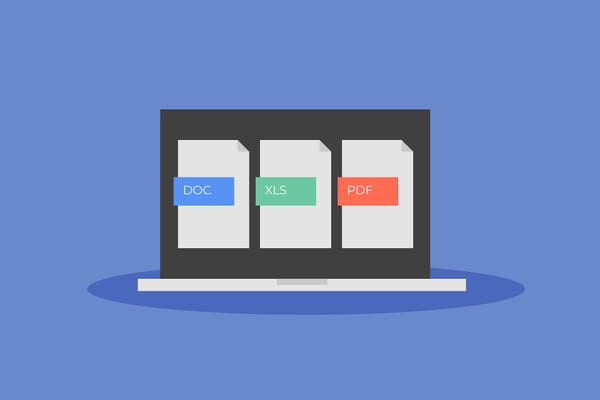Case Study: Ransomware Attack Hits a Small Clinic

Private practices, neighborhood clinics and other very small businesses in the healthcare sector face daunting cybersecurity challenges. As most of them operate on tight budgets with minimal IT infrastructure, threat actors often target these small organizations.
Despite their size, small clinics handle the same type of sensitive data as their larger counterparts. The stakes are exceptionally high: leaking sensitive patient records, not meeting mandatory regulation compliance, and potential disruptions can spell disaster.
Our case study delves into a hypothetical ransomware attack on a small healthcare clinic, focusing on the attacker’s modus operandi, the impact of the incident, the clinic’s response, and pre-emptive strategies.
Anatomy of a Ransomware Attack on a Small Clinic
The Targeted Clinic
In this scenario, we used a hypothetical, family-run healthcare clinic with fewer than 10 staff members. Personnel includes one physician, a nurse, a receptionist, and a part-time IT contractor.
The small clinic has a basic but functional IT infrastructure, where patient data is stored on a local server that can only be accessed on-premises.
Unfortunately, budget constraints have led to their systems not being updated as frequently as they should be, exposing them to vulnerabilities that threat actors could exploit.
Attack Details
Perpetrators send a carefully crafted phishing email, disguised as a message from a known vendor of medical supplies, to the clinic’s main contact email address, urging the recipient to review a new invoice.
Deceived by its apparent legitimacy, the receptionist downloads the attached file, unsuspectingly initiating the ransomware payload.
After opening the file, the ransomware stealthily spreads across the clinic’s systems, encrypting all accessible files. Within minutes, the malicious code locks all appointment schedules, patient records, billing information and other essential data.
A pop-up message prompts staff who try to access the files, demanding a ransom of $20,000 in cryptocurrency within 72 hours. To make matters worse, the attackers threaten to leak or destroy the data if their financial demands are not met.
Impact on Operations
Without access to patient records, the physician can’t review medical histories. Appointments are either canceled or rescheduled indefinitely. Billing and insurance claims are put on hold, resulting in cash flow issues and delayed payments.
The clinic’s reputation is affected as patients grow concerned about the privacy and security of their data.
Aside from the immediate impact on operations, the clinic must make a high-stakes bet: risking payment or attempting recovery on its own. The clinic must recover the encrypted files but has no guarantee that paying the ransom will fix the problem.
Although a $20,000 ransom could be easier for a large organization to handle, but it could seriously impact the financial stability of a very small business.
Last but not least, the clinic also faces the danger of reputational damage that could result if news of the breach becomes public.
The Clinic’s Response to The Attack
Initial Detection and Damage Assessment
After recognizing the severity of the situation, the staff immediately contacts the clinic’s part-time IT contractor, who performs an audit to determine the full extent of the breach.
An initial assessment reveals that the attack has encrypted nearly all patient records, along with other files and documents essential to the clinic’s operation. Staff is forced to switch from its Electronic Health Record system to paper-based processes, a tedious, laborious and frustrating alternative, but one that allows some patient care to continue.
Turning to Cybersecurity Experts and Law Enforcement
After assessing the damage, the small clinic contacts local police and a cybersecurity consulting firm. Engaging authorities is one of the most important steps in reporting the incident, as ransomware attacks on organizations in the healthcare sector have regulatory and legal ramifications.
The cybersecurity company performs an extensive audit involving forensic analysis to determine the attack’s origin, containment methods, and any evidence of data exfiltration.
Communication Strategy
The clinic decides to prioritize informing patients about the breach, as transparency and maintaining trust are equally important.
The security advisory highlights actions that the small clinic has taken to secure sensitive patient data, assuring clients that they prioritize their privacy.
To minimize potential legal fallout, the clinic also contacts regulatory authorities to ensure compliance with healthcare regulations, such as HIPAA.
Mitigation Steps and Recovery Strategies
Restoring Encrypted Data
Fortunately, the clinic’s IT infrastructure included a backup system. On the downside, inconsistent backup schedules lead to some patient records being outdated.
However, the clinic’s part-time IT contractor manages to restore partial functionality using the partial backups.
Cleanup and Mitigation
The cybersecurity company helps the clinic identify the vulnerability that jeopardized its system’s integrity—outdated software on its servers. The firm quickly patches the vulnerability to prevent further damage to the already weakened systems.
Additionally, experts conduct a thorough cleanup within the clinic’s network to remove any ransomware debris. The cybersecurity firm also helps the clinic implement enhanced security protocols, including strict access controls and email filtering modules.
After revising its cybersecurity policies, the clinic agrees that they were inadequate, and decides to invest in a comprehensive staff training program to educate personnel on cyber hygiene.
Preventative Measures for Small Healthcare Clinics
Despite their size, very small healthcare businesses should implement proactive security measures to mitigate ransomware attacks. These include:
- Regular Data Backups – A secure, off-site backup system with automatic backup schedules is essential. Routine tests on the backup system are also important in ensuring its efficacy. They ensure an organization’s data can be quickly restored with minimal disruption if ransomware strikes.
- Employee Training and Phishing Awareness – Rigorous staff training on recognizing suspicious activity and phishing emails can significantly reduce the likelihood of such attacks succeeding. Updating the training program to adapt to new phishing attacks shouldn’t be overlooked.
- Implementing Network Security and Access Controls – Network segmentation, firewalls, and role-based access controls can help prevent malware from spreading on the network, particularly in small setups where employees may share workstations
- Endpoint Security Solutions – Specialized security solutions like Bitdefender Ultimate Small Business Security can provide a robust line of defense against ransomware attacks and other intrusions.
The Importance of Dedicated Security Software
A dedicated security software solution tailored to the needs of small businesses like Bitdefender Ultimate Small Business Security can help defend against malicious campaigns and ruthless attacks, including ransomware.
Key features include:
- Sensitive Data Protection – Safeguards sensitive data and customer information through advanced threat detection and encryption technologies
- Scam Protection – AI-enabled technologies help businesses efficiently detect and deter scams
- Email Protection – Repels phishing attacks and other scam attempts to protect a business’s integrity, ensuring secure communication channels
- Built-in Password Management – Provides a secure, efficient way to generate, store, and manage robust passwords
- Digital Identity Protection – Monitors the digital identity of team members, ensuring their accounts are shielded from potential data breaches
Conclusion
Ransomware attacks on small healthcare organizations are a growing concern as cybercriminals recognize the vulnerability of clinics operating with limited resources but highly sensitive data.
Proactive security measures, regular backups, staff training, and appropriate cybersecurity solutions can help very small healthcare clinics minimize disruptions by fending off ransomware attacks and other digital intrusions.
Frequently Asked Questions About Ransomware Attacks on Small Clinics
What should I do if my clinic is hit by ransomware?
Immediately isolate affected systems, disconnect from the impacted network, contact law enforcement and cybersecurity experts, and initiate damage assessment.
How can I ensure my clinic’s data is secure?
Perform regular data backups, implement staff training programs, enforce strict, role-based access controls, and use an endpoint security solution designed for small healthcare businesses to maintain data security.
Are ransomware attackers targeting small clinics specifically?
Yes, attackers often see small clinics as soft targets due to limited cybersecurity resources, making them a growing focus for ransomware attacks.
tags
Author

Vlad's love for technology and writing created rich soil for his interest in cybersecurity to sprout into a full-on passion. Before becoming a Security Analyst, he covered tech and security topics.
View all postsRight now Top posts
How to Protect Your WhatsApp from Hackers and Scammers – 8 Key Settings and Best Practices
April 03, 2025
Outpacing Cyberthreats: Bitdefender Together with Scuderia Ferrari HP in 2025
March 12, 2025
Streamjacking Scams On YouTube Leverage CS2 Pro Player Championships to Defraud Gamers
February 20, 2025
How to Identify and Protect Yourself from Gaming Laptop Scams
February 11, 2025
FOLLOW US ON SOCIAL MEDIA
You might also like
Bookmarks








